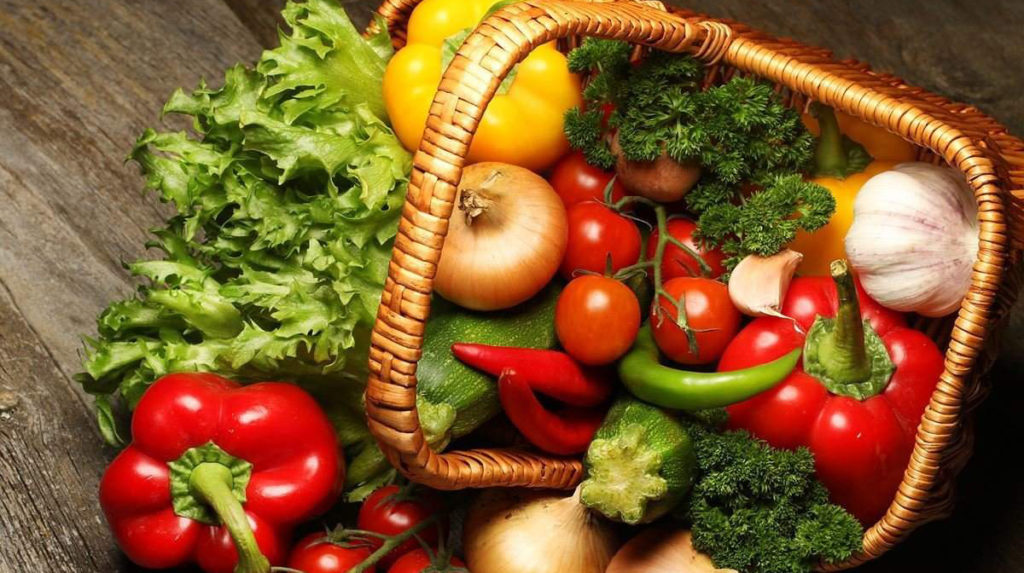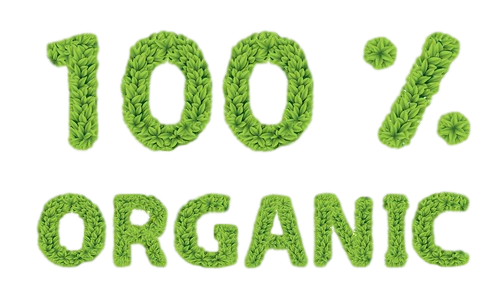What Does The Word Organic Really Mean In Our Food
Are you getting it right, buying from the correct places?

When you go to the store, you may see products labeled organic. The word is often seen in cheese, eggs, milk and meat as well as single-ingredient foods. Certified organic means the product has not been injected with synthetic chemicals or ingredients, genetically engineered foods and irradiation.
Of course, organic is a term thatís a bit redundant. After all, all food is made up of organic chemicals. Any ingredient utilized in making organic food must be deemed safe. For that reason, more and more people have grown aware of how valuable organic foods are. It doesnít matter if the food is lettuce, tomatoes, pineapples or chicken, healthier alternatives is a debate discussed over and over.
One of the nationís fastest-growing segments is organic farming & organic gardening is far more than what you think and what it does. Organic sales have risen over 20 percent each year. The number of farm and acreage have increased exponentially, and so as the number of organic farmers. With commodity programs ending, farmers have learned that organic farming is a truly viable option for their enterprise.
Why Are People Choosing Organic Foods Over Non-Organic Ones
When it comes to todayís organic production systems, farmers cannot use traditional synthetic organic fungicides. Farms that produce non-organic milk are permitted to use antibiotic treatments, synthetic pesticides and genetically-modified cattle feed. However, there are numerous arguments that claim chemicals and hormones added to the milk will have detrimental effects and lead to by-products.
People have chosen to purchase organic foods because of the pesticides on produce, antibiotics in the poultry and the growth hormones cows are given.
Animals raised on an organic diet are not given antibiotics or growth hormones. Producers must give their livestock 100 percent organic agricultural feed products, but they must also give them mineral and vitamin supplements.
Still, the Department of Agriculture set up a national system for how organic food is labeled. According to those new rules, consumers are able to learn what products are organic & those grown without the use of fertilizers, herbicides or pesticides. Growers are permitted to use organic pesticides to overcome difficulties they may face.
Foods with a minimum of 70 percent organic ingredients are permitted to list the ingredients on the front of the package. Over 40 private and state entities will certify the organic food, but how they do this ñ their guidelines & can differ. This is why itís sometimes hard to find out whether or not food is or is not really organic.

For cooking organic stocks are made from certified organic ingredients. But what exactly is organic food? Technically, it’s food that conforms to certain accepted standards of food production, handling, and processing. To qualify as organic, the environment and animal welfare have to be taken into account as much as possible: poultry and livestock are fed on organic feed that is GM free, and live in a natural environment with free-range space. Vegetables and herbs are grown using sustainable farming methods and natural fertilisers.
Is it worth buying organic? Make up your own mind with our no-nonsense guide…

What does ‘organic’ actually mean and what’s the difference between organic and non-organic fruit, vegetables and animal products?
Organic – a definition
The Department for Agriculture and Rural Affairs (DEFRA) states that:
‘Organic food is the product of a farming system which avoids the use of man-made fertilisers, pesticides; growth regulators and livestock feed additives. Irradiation and the use of genetically modified organisms (GMOs) or products produced from or by GMOs are generally prohibited by organic legislation.
Organic agriculture is a systems approach to production that is working towards environmentally, socially and economically sustainable production. Instead, the agricultural systems rely on crop rotation, animal and plant manures, some hand weeding and biological pest control’.
**Taken from DEFRA – Crown Copyright
Organic farming
Organic agriculture is about a way of farming that pays close attention to nature. It means fewer chemicals on the land such as artificial fertilisers, which can pollute waterways. It means more wildlife and biodiversity, the absence of veterinary medicines such as antibiotics in rearing livestock and the avoidance of genetic modification. Organic farming can also offer benefits for animal welfare, as animals are required to be kept in more natural, free conditions.
Organic labelling
For composite foods to be labelled as organic, at least 95% of the ingredients must come from organically produced plants or animals. EU-wide rules require organic foods to be approved by an organic certification body, which carries out regular inspections to ensure the food meets a strict set of detailed regulations, relating to production methods and labelling.
Look for labels like the Soil Association. This is the gold standard of organic labelling. Because some ingredients are not available organically, a list of non-organic food ingredients are allowed however, all artificial colourings and sweeteners are banned in organic food.
What the research says

With many people believing that organic foods have a higher nutrient content, are kinder to the environment and livestock and are healthier than conventionally produced foods, demand for organic produce is on the rise. However, scientists have not been wholly convinced that health claims are completely justified, as the research conducted has not shown consistent results with regards to nutrient density.
In 2009, a report published by the Food Standards Agency summarised the findings of previous studies on the comparative nutritional benefits of organic and conventional produce. It concluded that organic did not deliver significant health benefits compared to non-organic equivalents.
However, there is plenty of evidence that there are more vitamins, minerals and omega-3s in organic produce – albeit sometimes just a small difference. A systematic review showed higher levels of vitamins and antioxidants in some (though not all) organic fruit and vegetables as well as lower levels of pesticide residues and heavy metals.
Buying organic produce

Organic food is cheapest when bought directly from a farmer or producer, either via a box scheme, farmers market or farm shop. Buying local, organic food will often cost less than the non-organic equivalent.
Unfortunately, most of us cannot access organic food directly from the producer and therefore it tends to be more expensive than the basic non-organic equivalent in the supermarkets. It does pay to shop around. Some organic products cost less than premium non-organic products. You might be pleasantly surprised.
If you are on a tight budget but would like to buy more organic food, then you could try prioritising your purchases. Items such as organic flour, milk, bread and butter can be cheaper, as can fresh seasonal produce such as salad leaves and herbs. If you do compare prices, you may actually find that many organic brands are cheaper than their conventional equivalents and are often on special offer.
There are other reasons, besides nutrition, that people choose organic food – such as taste, to avoid pesticides and a concern for the environment. The organic movement does promote better soil and it stands to reason that in the long run, organic farming is better for overall soil quality. Let’s not forget the most important factor in your diet, as far as fruit and vegetables are concerned, is to eat as much and as wide a variety as possible.
If eating 100% organic is a struggle, keep in mind there are many high quality, wholesome foods around that do not come with organic certification – such as grass-reared meat, wild fish and hand-made cheeses.
When entering any detox program it’s advisable to try and only use organic ingredients for the juices. This is to ensure the best body balance posible. If you start with the best possible natural ingredients, you’ll have a much cleaner detox process over your transition.
